“Chinese players keep winning even during the Covid-19 pandemic. I have to be like that.” — Interview with Tomokazu Harimoto (1/2)
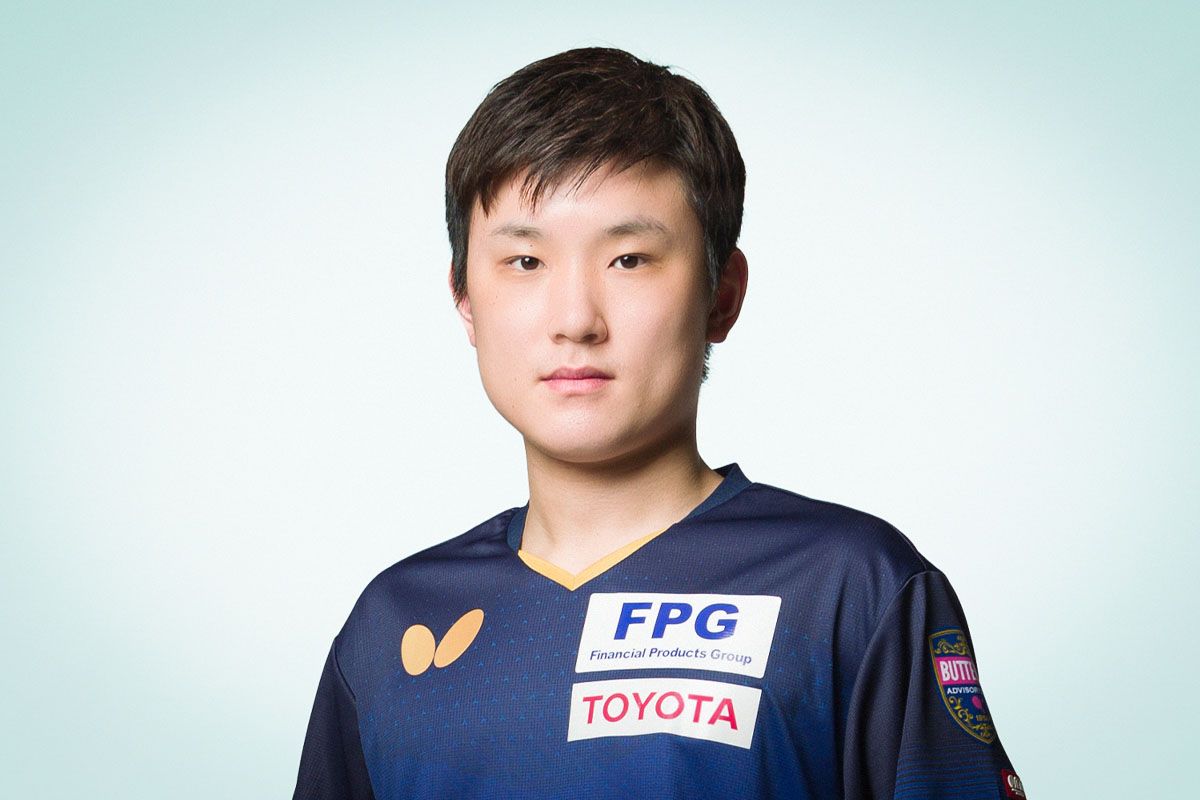
There are several turning points for athletes, where they are forced to make big choices in their individual athletic lives. There are many cases the choice made at that time can often drastically change their playing careers; either entering further education or being employed? Playing either inside the native country or abroad? Playing either as an amateur or a professional? Either retiring or continuing an athletic career?
The following series of interviews focuses on players at a turning point in their careers and the reasons of their decisions.
The first episode features Tomokazu Harimoto (JPN), one of the leading players with a bright career ahead in Japan. He has already accumulated vast experience, at 18 years old he is a veteran! He has won the All-Japan National Championships and has captured medals at the World Championships and Tokyo 2020 Olympic Games.
— You won the men’s singles event after a long pause at the LION Cup Top 32 for the first time.
That was my first men’s singles title after the WTT Star Contender in Doha in March last year, so I was relieved first of all. Until that event, there were many cases I lost to players whose rankings were lower than mine, so the win meant a lot for me.
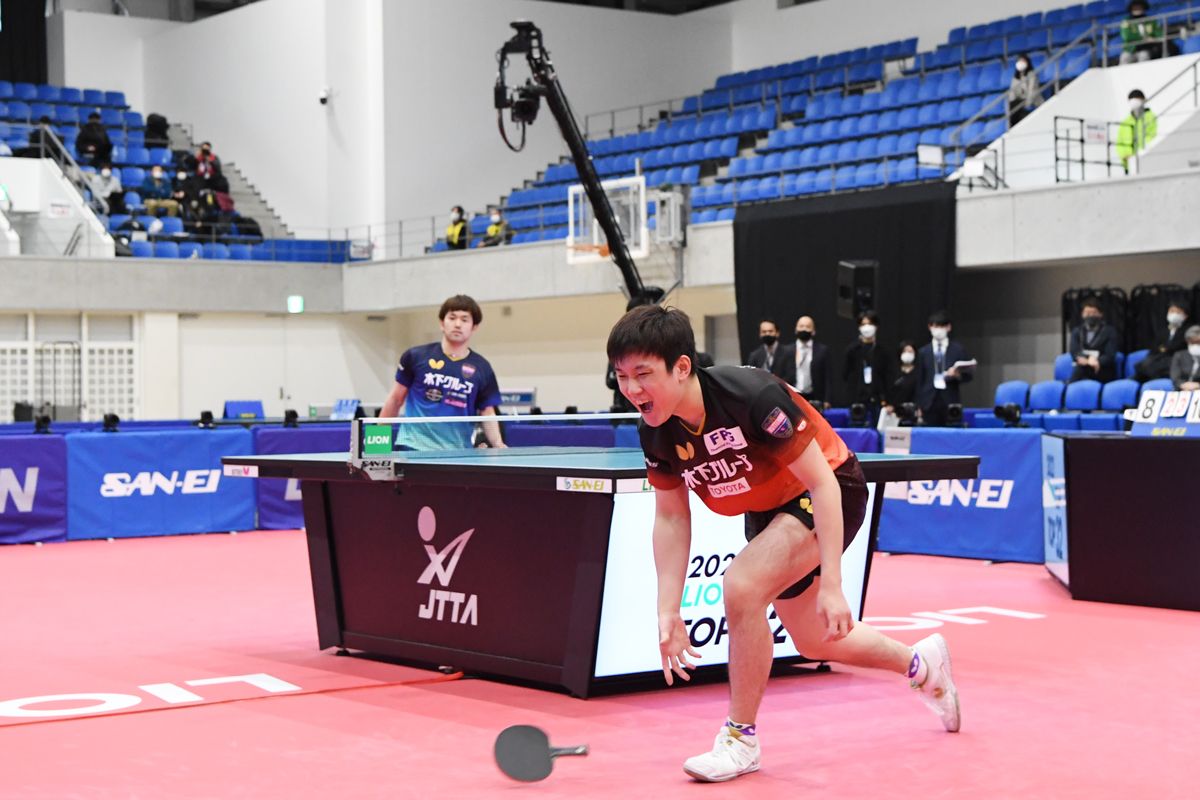
— Your play was not as good as you had been expected in the men’s singles events at the Tokyo Olympic Games and the 2021 World Table Tennis Championship Finals in Houston, but do you think you are now out of the dark long tunnel?
I don’t think I am completely out of the tunnel. I cannot say I am out of the dark tunnel until I beat Chinese players; I won against Ma Long (CHN) a few years ago, so I think I am still on the way back to where I was then, I am still recovering.
However, I am sure I am going in the right direction, I am also mentally fine.
— Do you have a clear vision how to win against Ma Long or other Chinese players?
I can express myself to the full extent when I play against strong players like Ma Long, but I have recently lost before proceeding to such rounds, I think I can play more boldly once I can advance to the latter rounds.
Therefore, my big challenge is to win the first and second rounds at tournaments, which I feel is difficult.
— What in particular is difficult?
I am not able to play boldly against players ranked lower than me, I tend to play safely because I am eager to win against them. Then, attacking play decreases naturally and I cannot make fully powerful strokes; thus, sometimes I cannot build the plan for the match by myself.
I have to practise more and be mentally stronger. I wish I could play more matches, but I think I am now better than last year as I have been able to exercise my original bold play during practice recently.
— The Singapore Smash held in March was the first international tournament in a while; how was your feeling?
The Smash was the overseas expedition right after the LION Cup, but I had to reboot my mind, while I was delighted with the win after a break. I think I was a bit underprepared, to be honest.
It was held five days after the LION Cup and I had only taken measures for the matches against Japanese players, so I could not adjust myself to compete against foreign players.
Kanak Jha (USA), against whom I faced in the first round, is a tenacious player. I was not able to play tenaciously from around the third game, when we were one game all, I lost the fourth game 3-11, I could not manage to win a match in such a big situation.
However, physically, it was a tournament after the T.League finals and the LION Cup and I felt I had used all my exertions, so I think I could not control myself at the Smash. Kanak is not a difficult type of player, but he has built up many achievements such as the quarter-finals at the 2021 World Championship Finals in Houston, there he had momentum at that time. I could not control myself even in the fourth game, after losing the third game where I had taken a lead...
I lost the match due to various reasons, the five-game match being one of them, but I have achieved an emotional closure to this loss, so most important for me now is to prepare for the next Budapest Smash with full force.
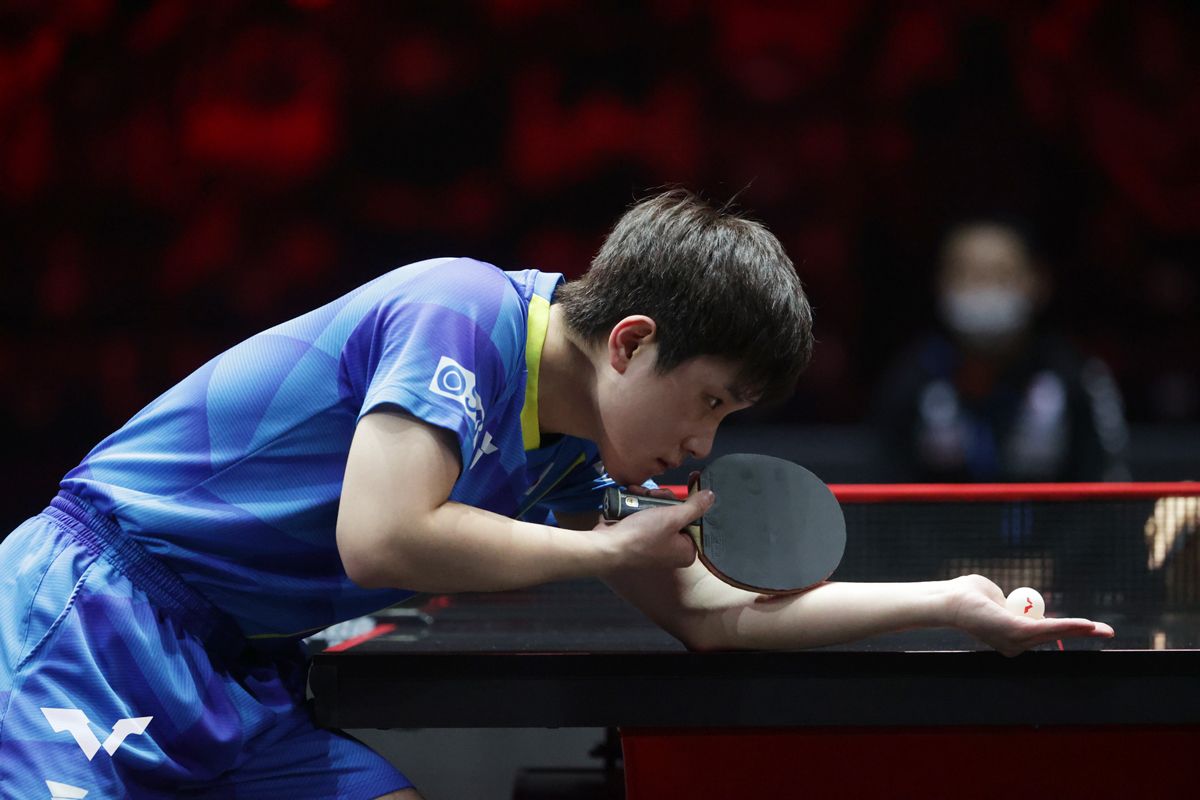
— Is there any effect from the decrease in the opportunity to compete against the players from overseas due to the COVID-19 pandemic in the last few years?
I cannot remember the feeling of the past when I had international tournaments every month, before the pandemic. I am forgetting the feeling actually.
Now I become nervous when there is an international tournament for the first time in a while, so in that sense, I think the importance of one tournament is greater than before. After the outbreak of COVID-19, I have no idea when my next tournament would be if I missed one and I think too much about that, so I sometimes feel pressure in a weird way.
During this situation, however, Chinese players have continued to win titles, so I feel I have to become able to win in any situation.
I can easily find my problems if I compete almost every month, which leads to the motivation for practice, that makes it clear for me to correct and try until the next tournament. Without competitions, however, I could not work on only one task for a few months. I had no idea against whom I would play next time, so it was difficult not to have any competition especially in 2020. Every practice is for competitions, so there were some cases I was about to forget the meaning of the practice during the long-lasting period without any tournament.
— The COVID-19 pandemic remains influential, but has your situation changed due to high school graduation and entering university (the e-learning courses in the School of Human Sciences, Waseda University)?
Yes, the biggest change is that I started to live on my own. I work hard by myself because there is no family member with me who had cared for me in the past. I am not yet able to cook by myself, so I usually eat where I practise or I take something away.
My parents admitted my living on my own easier than I had expected when I told them about my wish. The easiest point I feel is that nothing is said to me when I am back home as nobody is there (lol). I am careful about not to be too much relaxed or unconstrained, in order not to affect my table tennis.
— You changed your affiliation; has the practice environment changed as well?
Yes, one of the biggest changes may be that I have no designated place for practice. I came back from Aichi prefecture three days ago; I have practised at Aikodai Meiden High School and Aichi Institute of Technology since May, with the help of Mr Imaeda (Ichiro Imaeda, the head coach of the table tennis club at Aikodai Meiden High School) and Mr Sanada (Koji Sanada, the head coach of the table tennis club at AIT Junior High School) and Mr Morimoto (Kohei Morimoto, the head coach of the men’s table tennis club at Aichi Institute of Technology).
I also thank Mr Tasei (Kunihito Tasei, the head coach of Japanese men’s national team) who is very supportive enough to find the places to practise. I sometimes organise practice myself somewhere. I really appreciate every team who accepts me for their kindness.
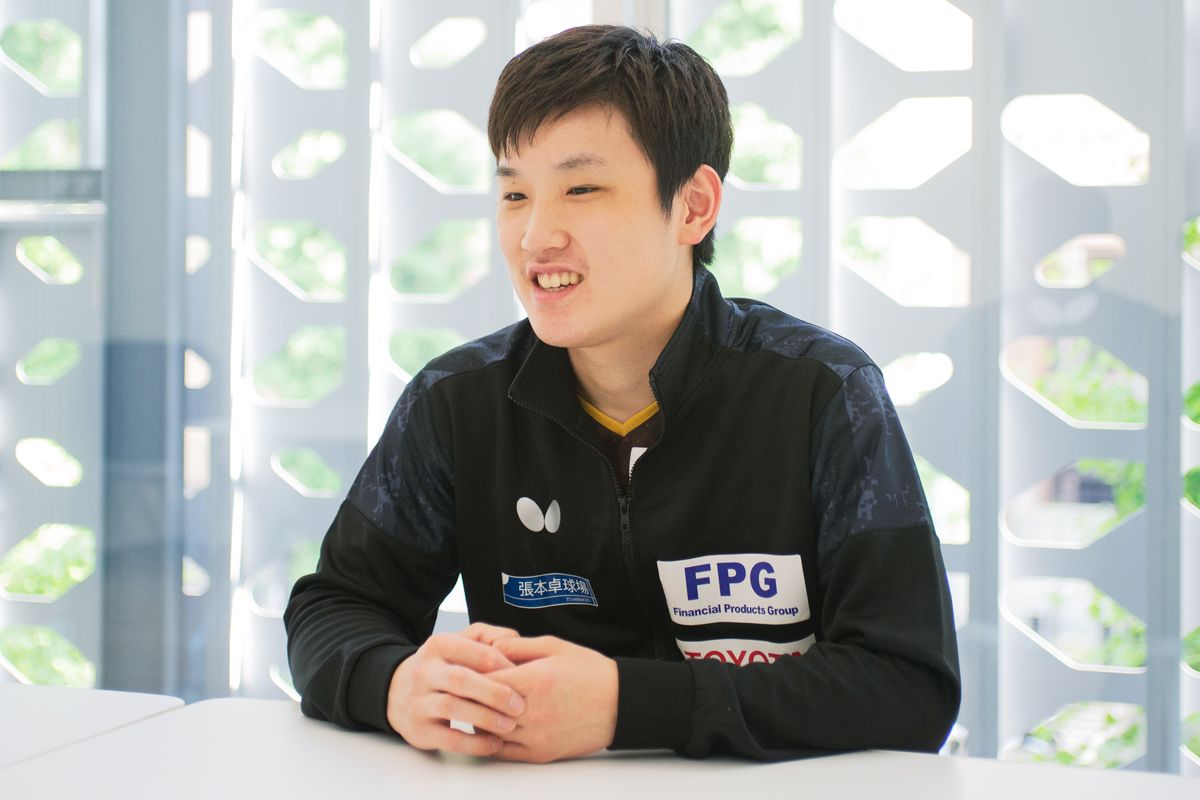
— Starting this season, you are playing in an overseas league for the first time.
Yes, I will take part in the European Champions League for a German team, TTC Neu-Ulm. My teammates are Dimitrij Ovtcharov (GER), Lin Yun-Ju (TPE) and Truls Moregard (SWE), I heard the season will start in September, that does not mean I will stay in Germany for a long while, I think I will come and go between Japan and Germany.
It is important to experience a foreign table tennis league, but I think the most important thing for a professional table tennis player is to win a title. My teammates are all strong, but I strongly want to contribute to winning the title by securing wins by myself without relying too much on my teammates.
I have no concerns about living abroad. I have lived in Germany and Europe during tournaments before, so I already have a rough image.
I am looking forward to going there basically although I have a small concern if I can communicate with them as this will be my first time to stay and practise in a foreign country for such a long time.
— Are you looking forward to practising with your teammates?
Yes, but I do not think I will be automatically stronger just by going to Germany; there will be no meaning if I only change the place for practice, so I need to prepare with whom and what I should practise and what I want to learn from them before actually departing.
I want to practise with Ovtcharov as I have never practised with him; I also want to glimpse how German players feel and spend time as I think I can look at a bit of their regular life.
I have almost never talked with Lin, so I hope I can understand his way of thinking by talking with him.
— They are all difficult players when competing against, but is there any foreign player you eye as a rival?
Both Ovtcharov and Lin are the players I have to win against at WTT events. I will not be able to secure even a bronze medal without beating everybody except two Chinese players at Olympic Games if I want to win a medal. I have competed against both of them without closely involving with them so far, we will play next time knowing each other very well, so I think I will face another kind of difficulty in winning against them. It will be difficult to compete against them if we become too close to each other, so I want to isolate normal life from competitions.
Lin, especially, was only one step away from a medal at the Tokyo Olympics and he does not lose to players ranked lower than him, so I think he is strong.
Regarding Chinese players, not to mention Fan Zhendong and Ma Long, Wang Chuqin is strong. I think he is the most dangerous player for foreign players.
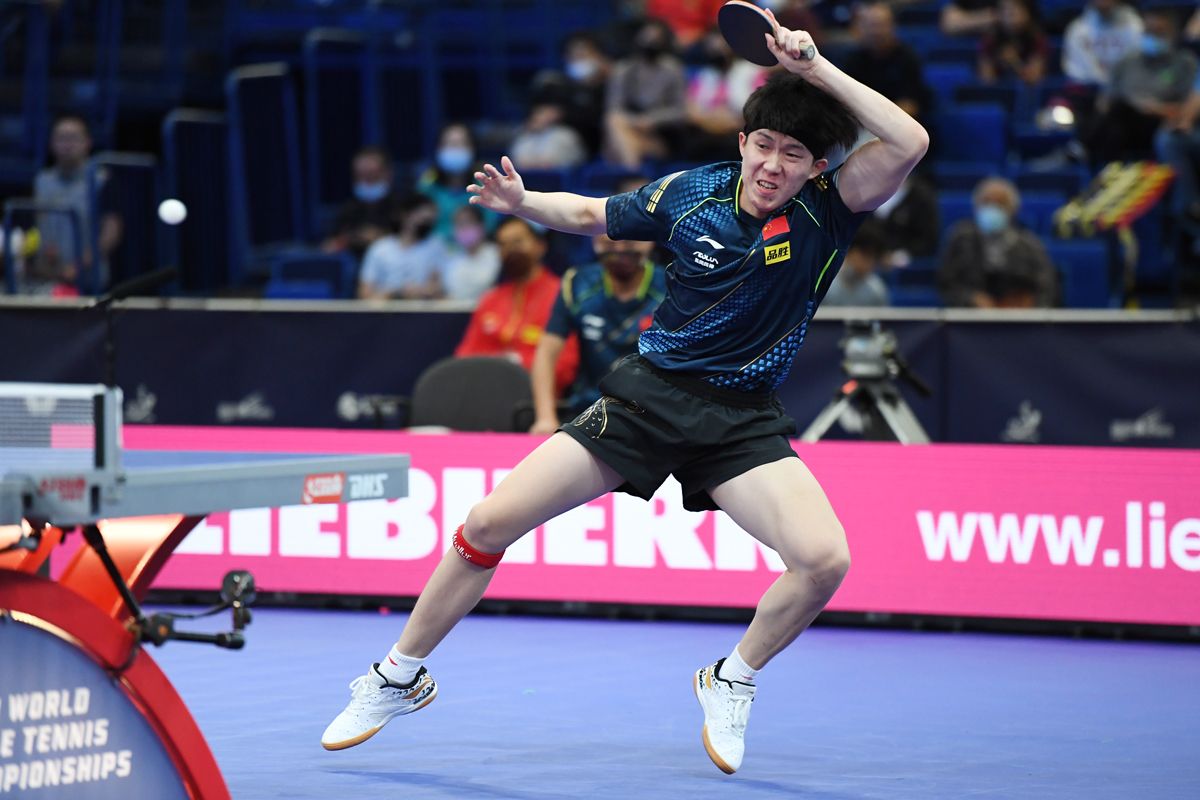
— The road to the Paris 2024 Olympic Games is expected to become more and more challenging, but what kind of position are you aiming at?
Now that Jun Mizutani retired, I think I am the one who has experienced the most recently, from the aspects of both ranking and records. The champions of the recent Japanese National Championships are all different and it is no doubt that every player competes against each other with the wish to become the next ace. What I felt at the Tokyo Olympic Games is that the ace has to win at the Olympics. I won all the matches in the team event during the Tokyo Olympics, so I strongly want to contribute to the Japanese team by winning a medal in the singles event in Paris.
However, I will not be able to talk about this if I cannot play in the next Olympic Games, so I want to concentrate on winning in the series of internal selection events. I do not care very much about who is the ace in Japan. The player who wins the most is the strongest, so I want to work hard to finally secure a medal in Paris.
— Is there any Japanese player you eye as a rival?
The player with the biggest momentum is Shunsuke Togami for sure; he is very energised and motivated and what he is doing is first-class and backs up his self-belief.
When I spent time with him after the last All-Japan National Championships, I felt he also has the aim to lead Japanese table tennis. I have no intention to lose against him when we compete, but I think he will be a strong colleague when we are in the same team for a team event.
His play is a bit different to that of other Japanese players, his attacking capability is high. I think he has a high possibility to win against Chinese players. Therefore, amongst Japanese players excluding myself, I guess he is the player who will be evenly matched against the Chinese.
Also, Jo Yokotani, against whom I competed at the LION Cup, was strong; I won 4-0 but I thought it could have been 0-4 if something had worked differently. His playing style is similar to mine; he plays close to the table, and he is good at backhand strokes. His playing form is good enough, so I think he will become stronger if he accumulates experience. Mizutani also appreciated his play.
Among young players, I take notice of Ryuusei Kawakami. I have a feeling that he will be strong.
